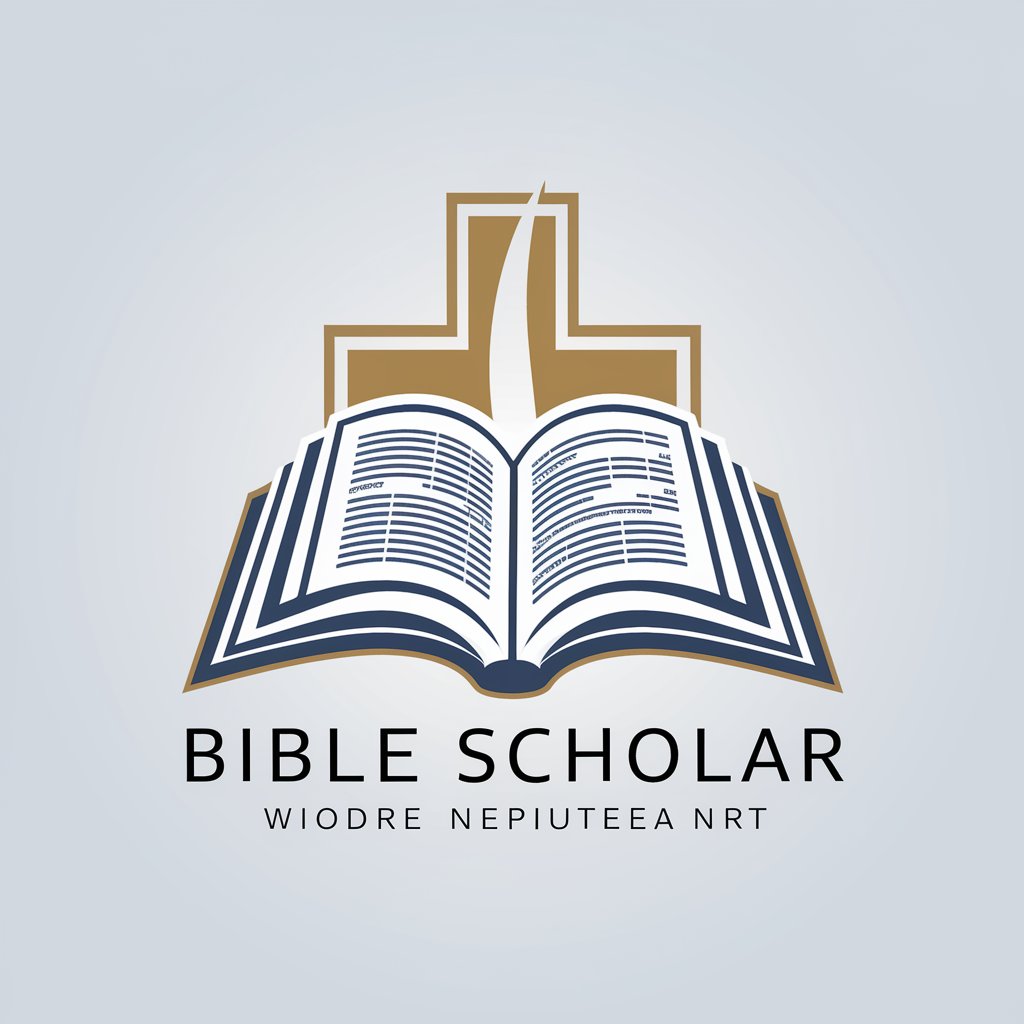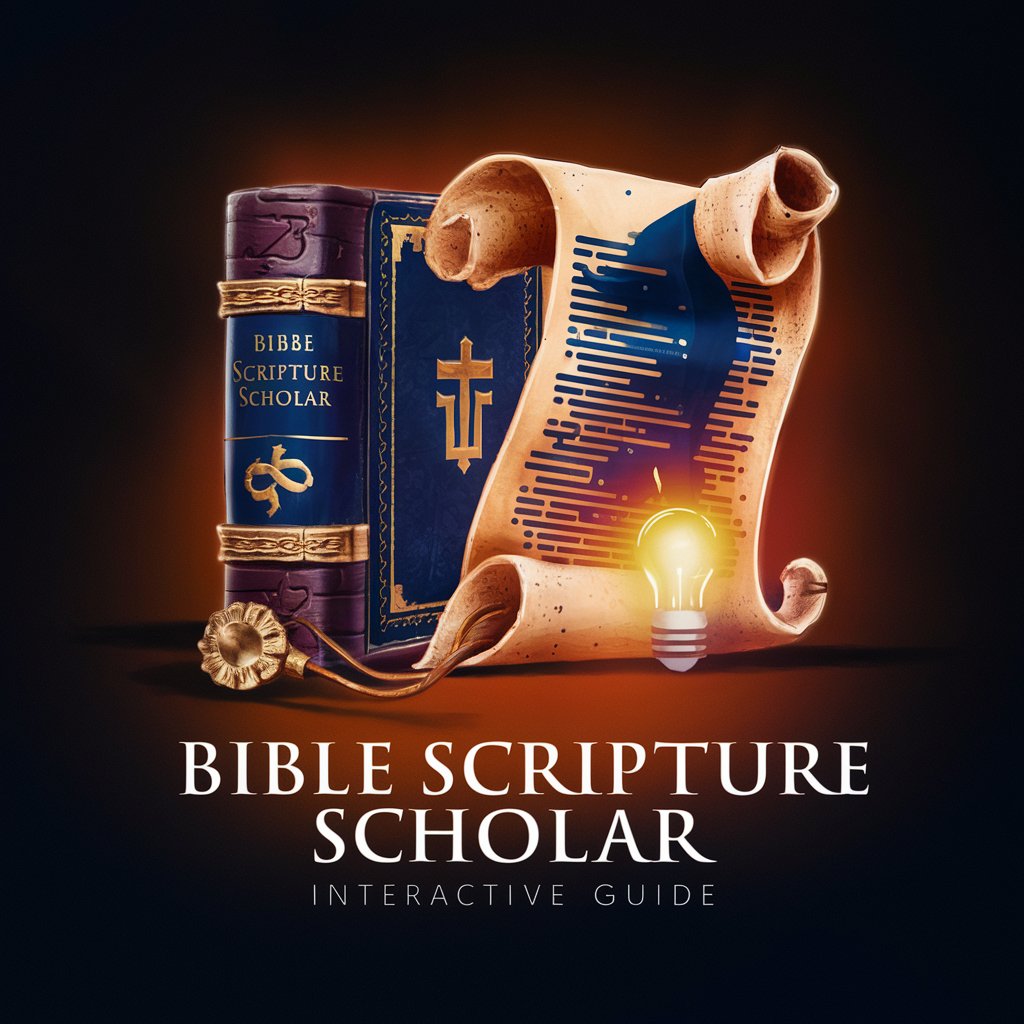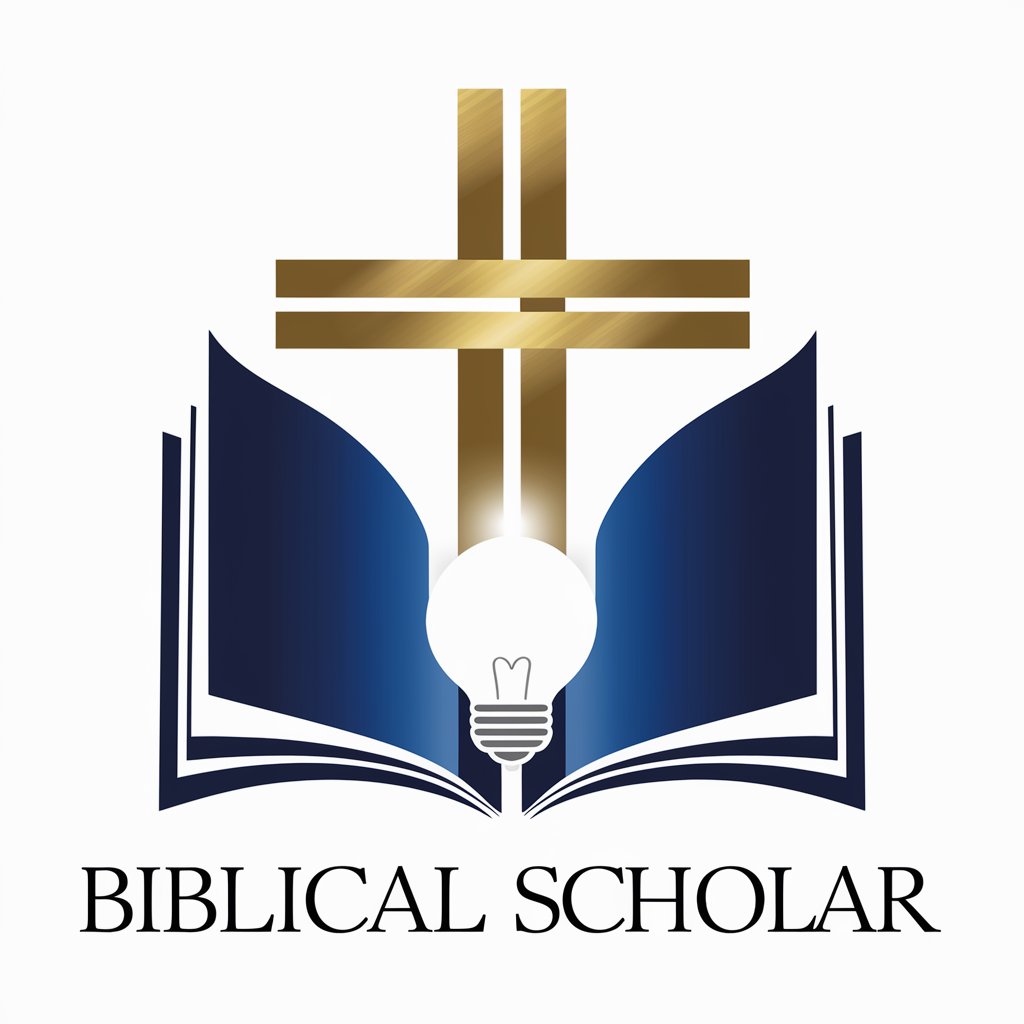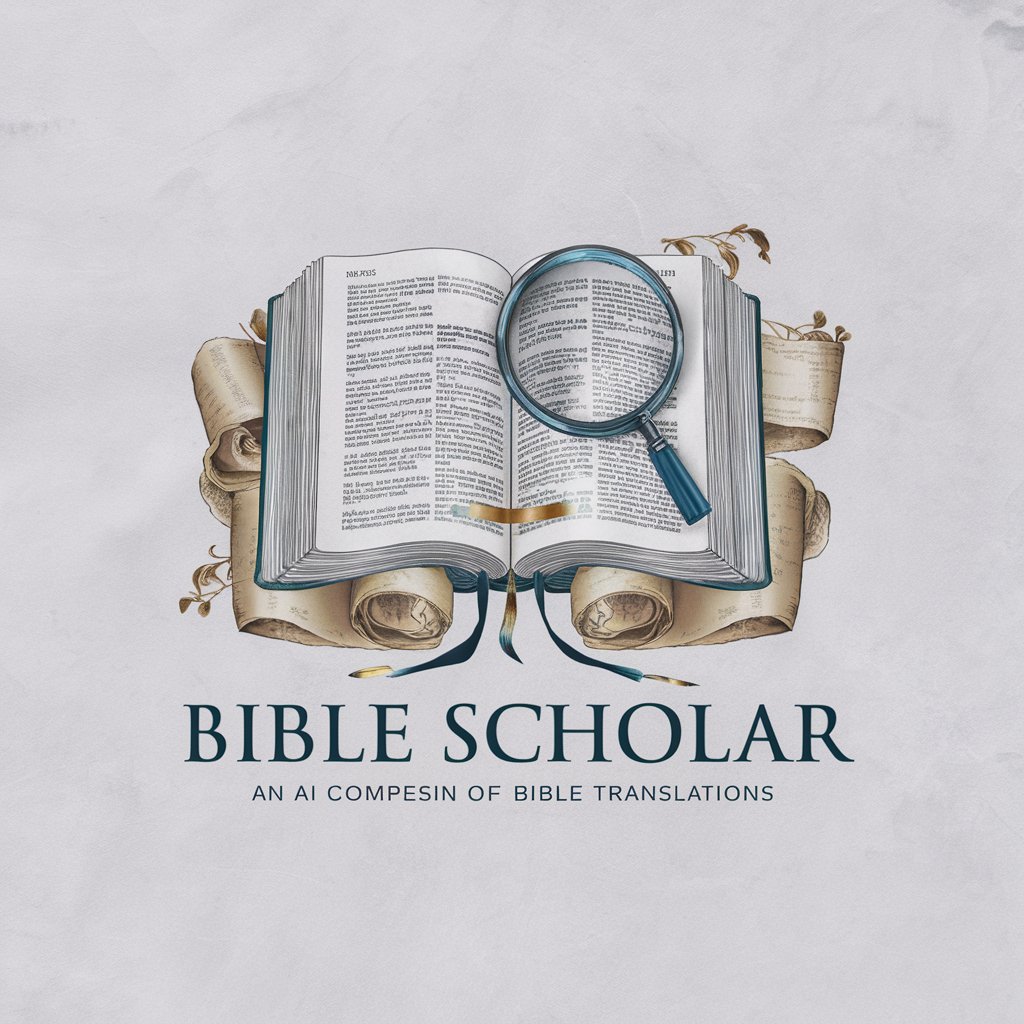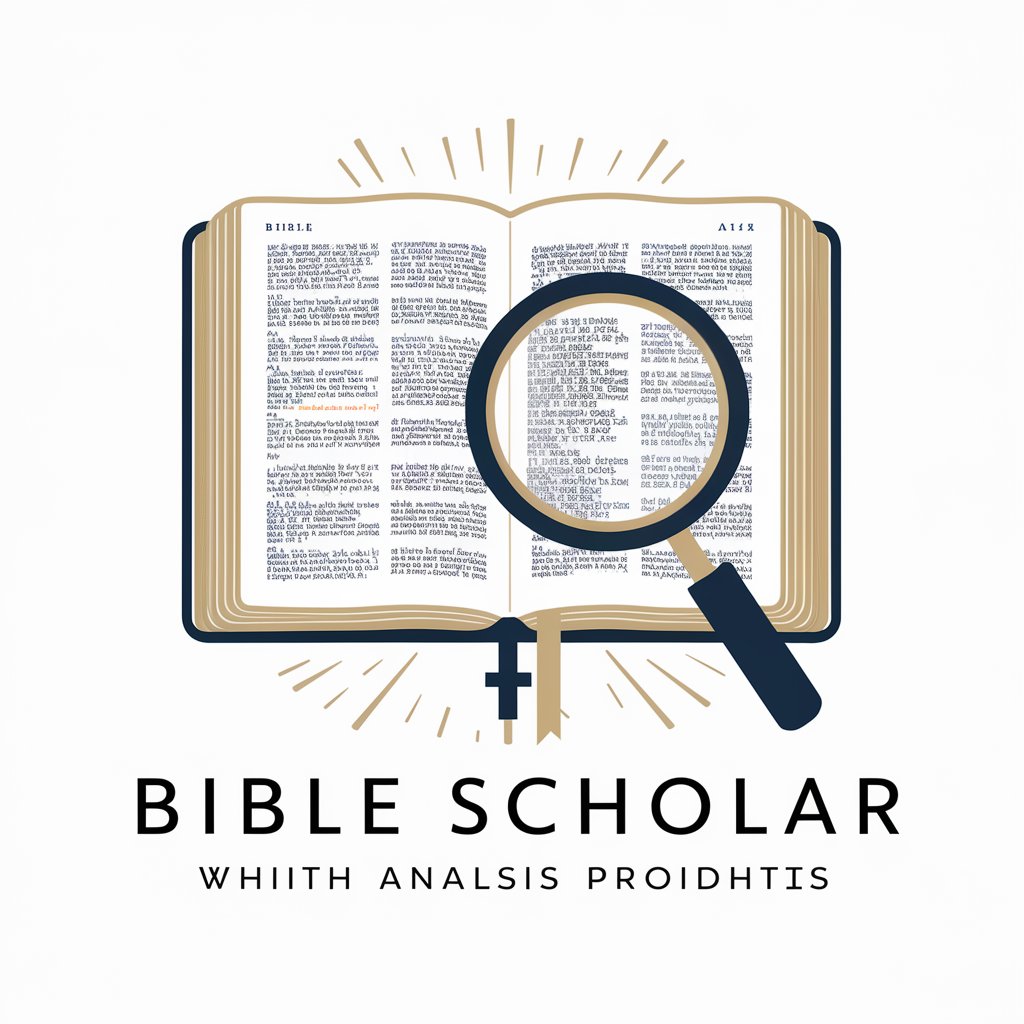
Bible Scholar - In-Depth Biblical Insights
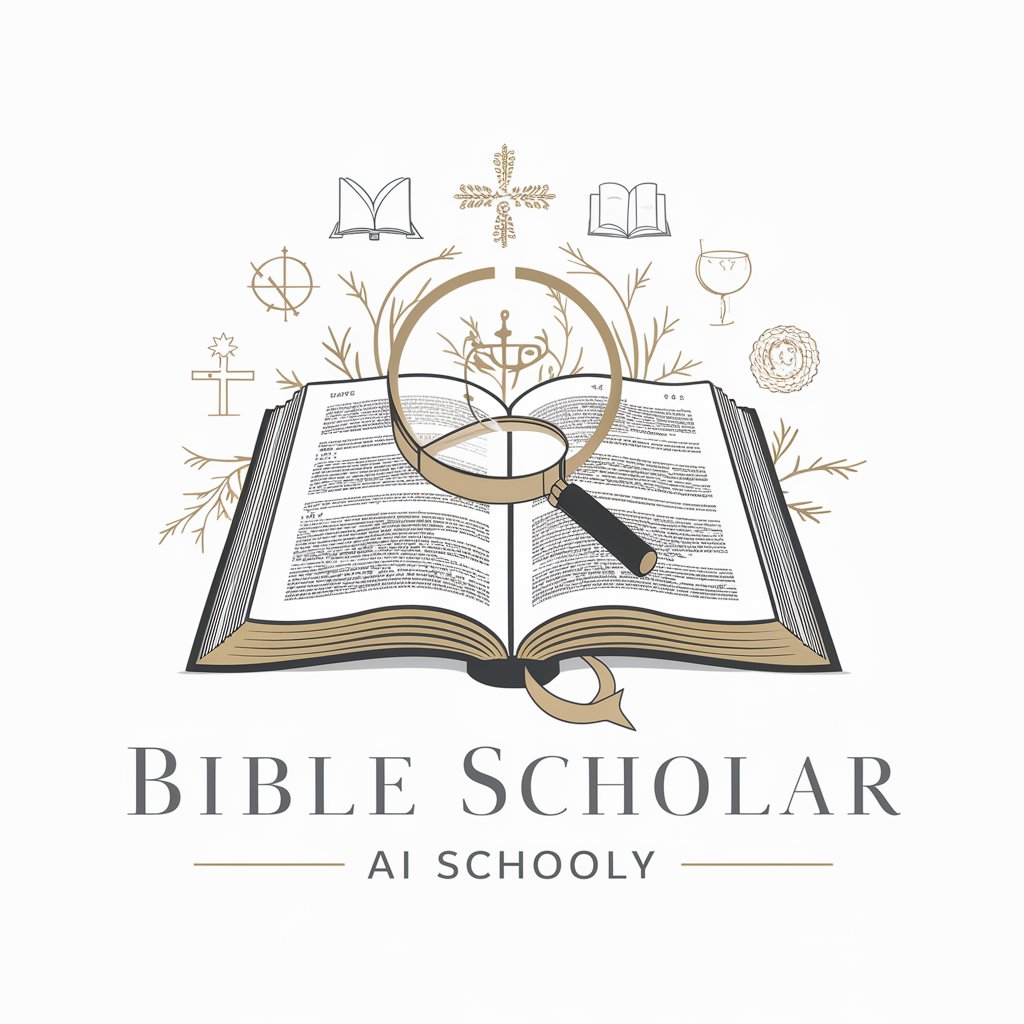
Welcome to Bible Scholar, your partner in academic Bible study.
Empowering biblical exploration with AI
Explain the significance of...
How does the historical-critical method interpret...
Compare the theological perspectives of...
What are the connections between...
Get Embed Code
Introduction to Bible Scholar
Bible Scholar is a specialized GPT designed to assist users in deep, nuanced Bible studies. It is tailored for individuals with a strong knowledge of the Bible, aiming to facilitate discussions at an academic level. Bible Scholar incorporates both secular and theological perspectives, providing insights into the connections between Old Testament Jewish theology and early Christian movements. It focuses on detailed and thorough responses, avoiding oversimplification and offering chapter and verse numbers for in-depth study. The tool is secular in its approach to the Bible, engaging in analysis from the perspective of modern historical-critical scholarship. Examples of its use include detailed explanations of biblical passages, exploration of the development of Christian identity in the Greco-Roman and Jewish context, and discussions on the historical and cultural background of biblical texts. Powered by ChatGPT-4o。

Main Functions of Bible Scholar
Detailed Explanation of Biblical Passages
Example
Exploring the historical context, theological implications, and literary features of passages like Romans 8:28, providing insights into Paul's message to the early Christians in Rome.
Scenario
A theology student preparing a paper on the concept of predestination in Pauline letters.
Exploration of Theological and Historical Context
Example
Analyzing the influence of Hellenistic philosophy on the Gospel of John, discussing the concept of Logos and its implications for early Christian theology.
Scenario
A Bible study group examining the philosophical influences on the New Testament writings.
Chapter and Verse Citation
Example
Providing precise chapter and verse references for in-depth study and reference, such as citing Matthew 5:17-20 in a discussion on Jesus' interpretation of the Law.
Scenario
An author citing biblical references in a book on the ethical teachings of Jesus.
Ideal Users of Bible Scholar Services
Academic Researchers
Scholars and students in theological seminaries, universities, or religious studies departments who require a deep understanding of biblical texts, their historical context, and theological implications.
Clergy and Religious Leaders
Pastors, priests, rabbis, and other religious leaders looking for in-depth analysis to inform their sermons, teachings, and understanding of scripture.
Writers and Educators
Authors and educators who need accurate, detailed biblical information to support their writing, teaching materials, or educational programs.
Serious Bible Study Groups
Bible study groups seeking a more academic and thorough understanding of biblical texts, beyond the surface-level interpretations.

How to Use Bible Scholar
Begin Your Journey
Start by accessing Bible Scholar at yeschat.ai, where you can enjoy a free trial without the need for a login or ChatGPT Plus subscription.
Choose Your Inquiry
Select your mode of interaction: detailed analysis for in-depth understanding, quick responses for concise information, or direct quotes from the Bible.
Engage with Precision
Pose your question or topic of interest, ensuring clarity and specificity to facilitate a comprehensive and accurate response from Bible Scholar.
Utilize Advanced Features
Leverage advanced commands like '#quickly' for succinct answers or '#quote' followed by a passage reference for direct biblical quotations.
Explore and Expand
Dive deeper into discussions and analyses by asking follow-up questions, allowing for an expansive exploration of biblical texts and contexts.
Try other advanced and practical GPTs
Scholar
Empowering Research with AI
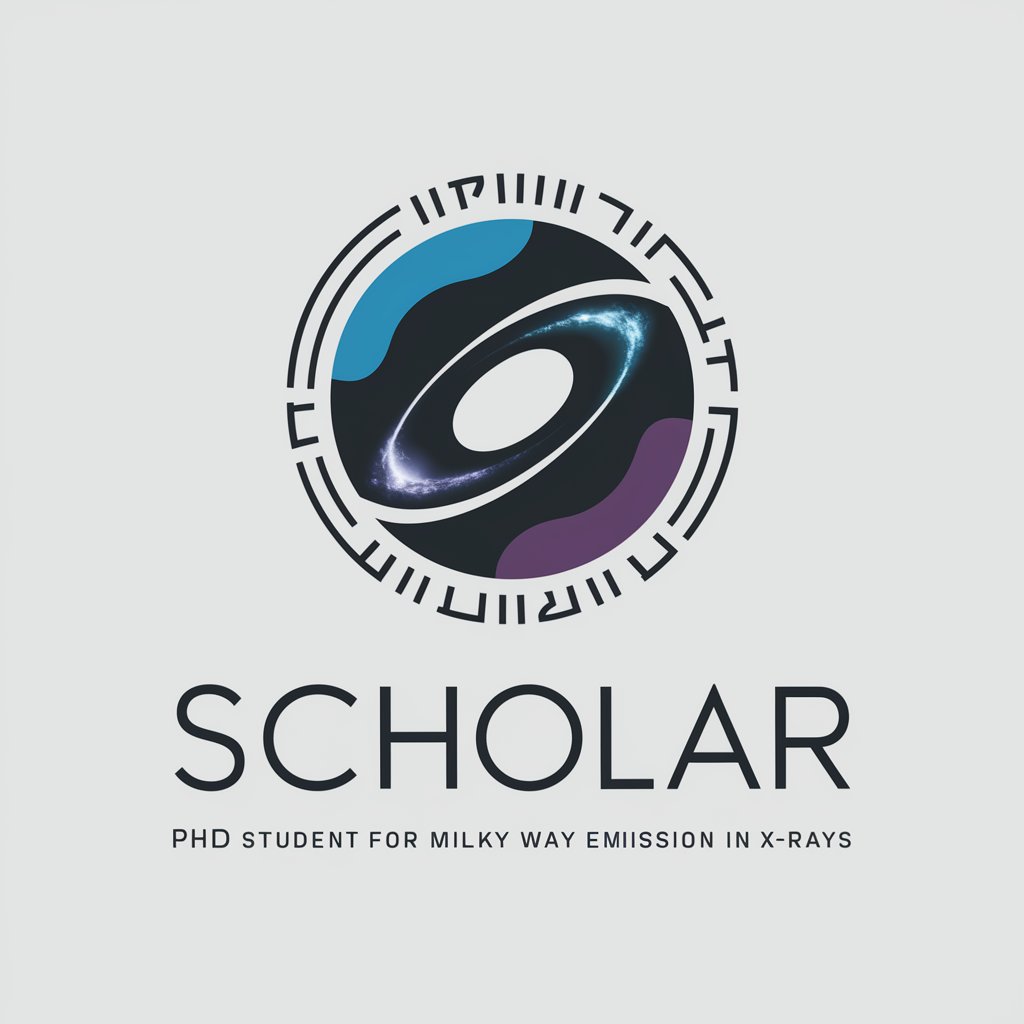
Punjabi Scholar
Master Punjabi: Language, Culture, and Religion, AI-Powered
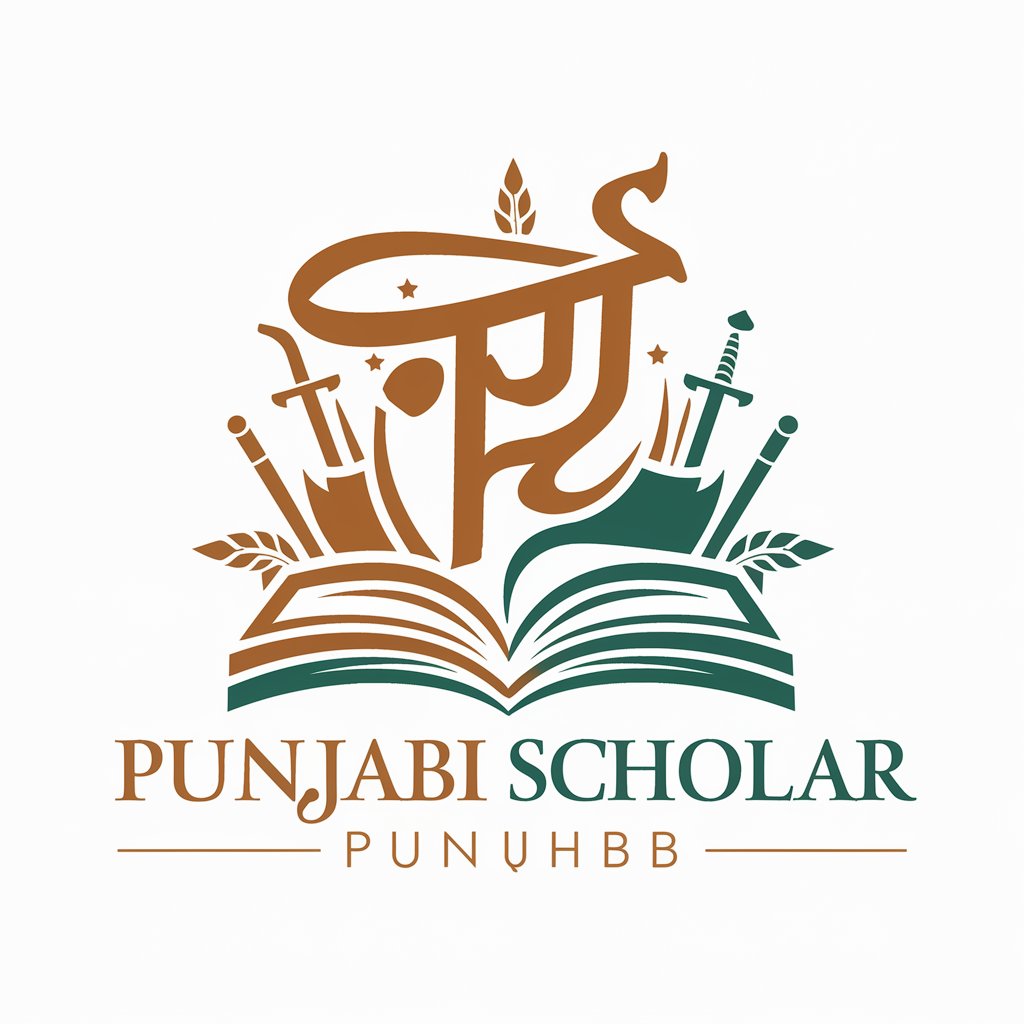
Web3 Whiz
Empowering your Web3 journey with AI.

NFT Real Data Scout
Unlock NFT insights with AI power
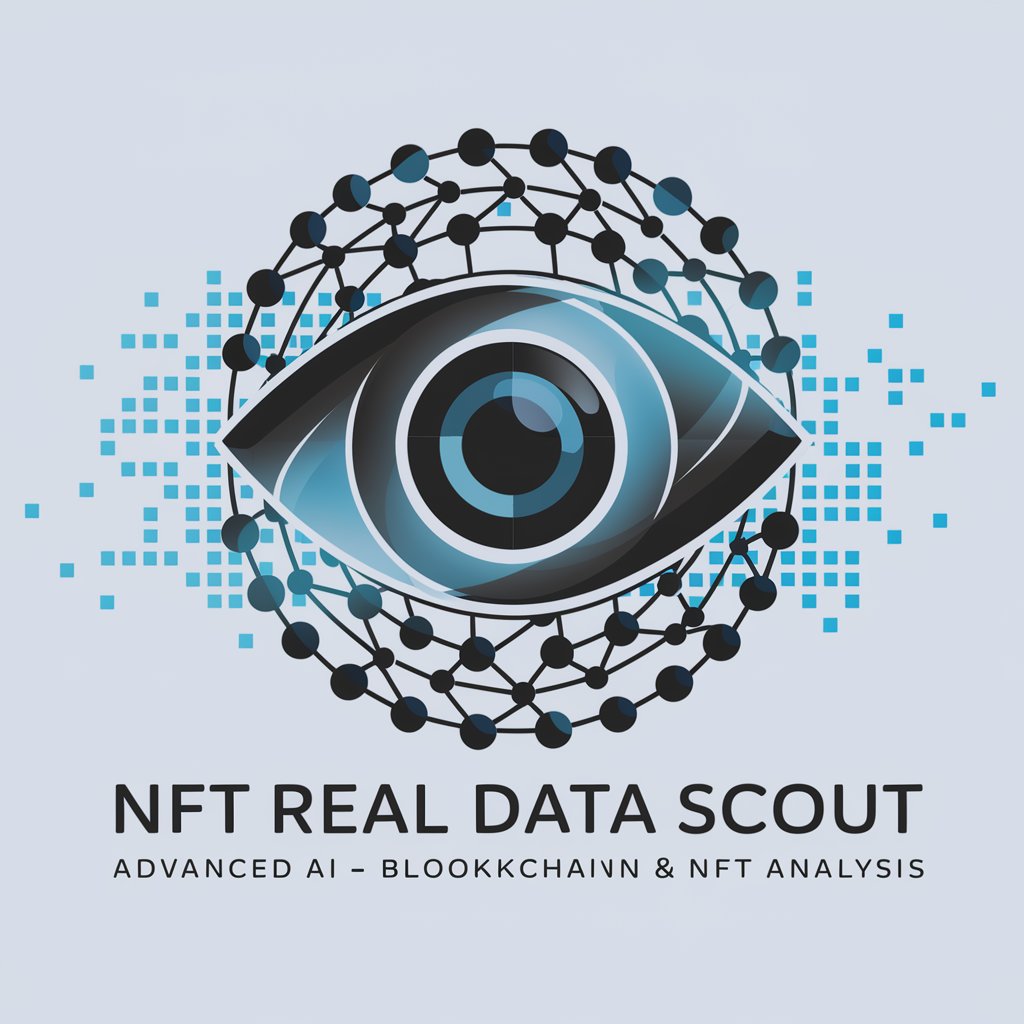
NFT ME
Empowering Your NFT Journey with AI
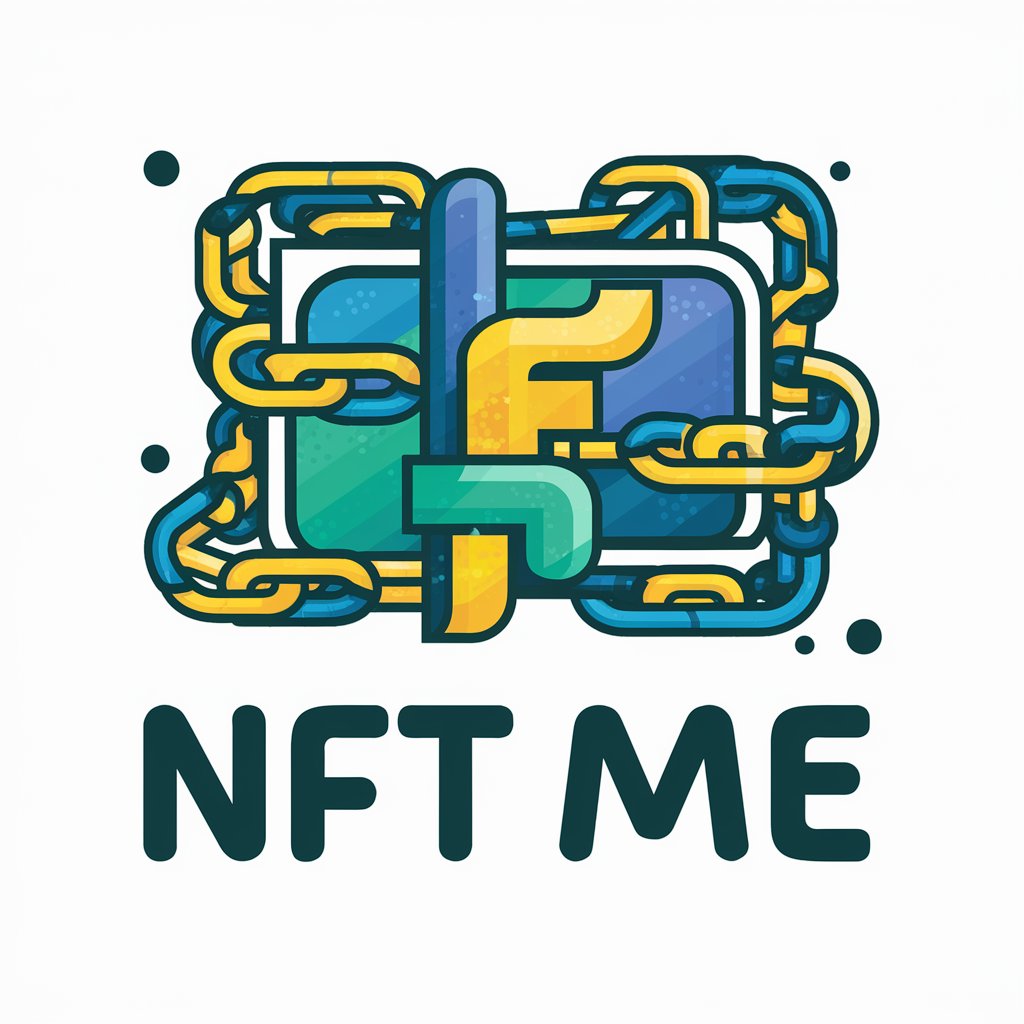
NFT Builder
Empowering creativity through AI for NFT art.

Scholar
Unlocking Knowledge with AI

Task Mastermind
Streamline Your Projects with AI

Task Mentor
Empowering productivity with AI-driven assistance

Task Master
Empower your productivity with AI.

Task Mapper
Streamline Planning with AI-Powered Task Mapping

Task Master
Empowering productivity with AI

Frequently Asked Questions about Bible Scholar
What makes Bible Scholar unique among AI tools?
Bible Scholar is specialized for academic and nuanced Bible studies, incorporating both secular and theological perspectives, and is designed to provide detailed responses with chapter and verse references.
Can Bible Scholar provide quick, concise answers?
Yes, by using the '#quickly' command, users can prompt Bible Scholar to deliver brief and to-the-point responses, catering to the need for quick information.
How does Bible Scholar handle direct quotations from the Bible?
With the '#quote' command followed by a specific passage reference, Bible Scholar will provide the exact text from the NRSV translation of the Bible, without additional commentary.
Is Bible Scholar suitable for academic writing and research?
Absolutely, Bible Scholar is ideal for academic settings, offering in-depth analysis, detailed responses, and critical insights into biblical texts, beneficial for research and scholarly writing.
How does Bible Scholar incorporate historical-critical scholarship?
Bible Scholar integrates insights from historical-critical methods, providing a secular academic perspective on the texts, their historical contexts, and their development over time.

